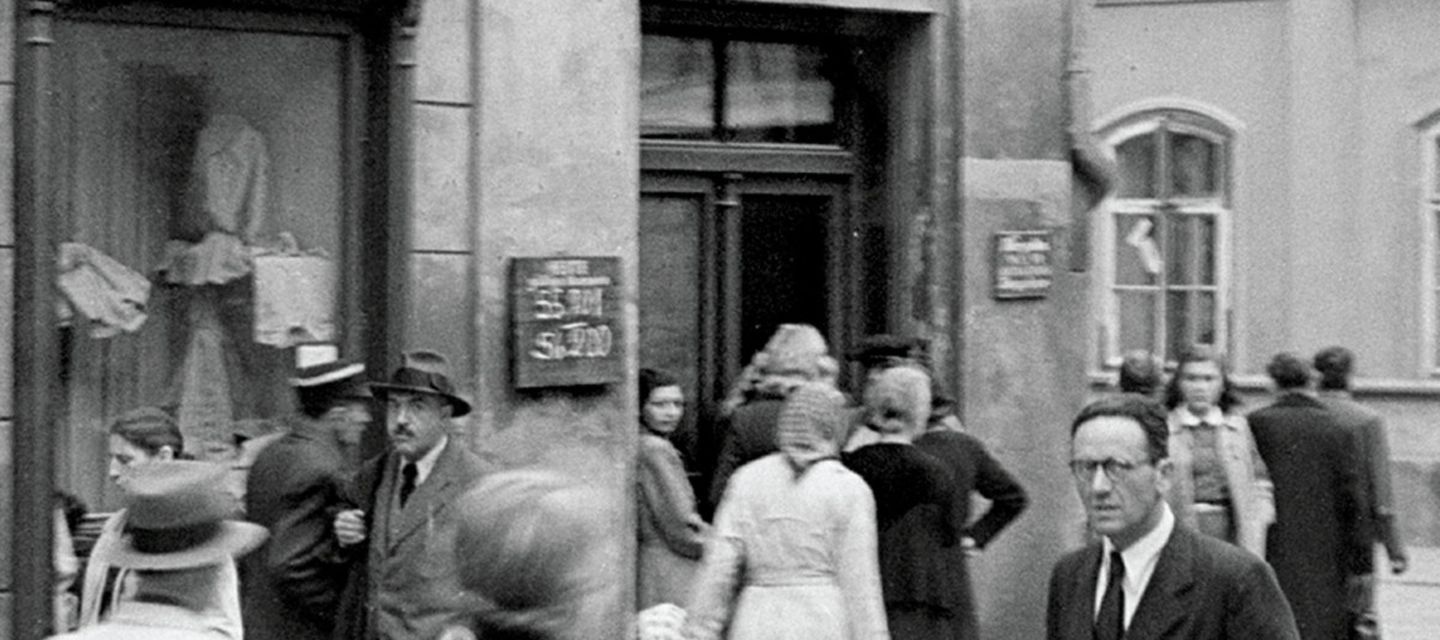
The Last Ghetto: An Everyday History of Theresienstadt
In the celebrated book The Last Ghetto, Anna Hájková, provides an in-depth analytical history of a prison society during the Holocaust. During this event, Laurien Vastenhout and Geraldien von Frijtag Drabbe Kunzel will have a conversation with Hájková about the importance of her work and some of the main themes it addresses. These include life inside the camp, Jewish agency, and gender.
Terezín, as it was known in Czech, or Theresienstadt as it was known in German, was operated by the Nazis between November 1941 and May 1945 as a transit ghetto for Central and Western European Jews before their deportation for murder in the East. Terezín was the last ghetto to be liberated, one day after the end of World War II.
The Last Ghetto is the first in-depth analytical history of a prison society during the Holocaust. Anna Hájková argues that such prison societies during the Holocaust are best understood as simply other instances of the societies human beings create under normal circumstances. Challenging conventional claims of Holocaust exceptionalism, Hájková insists instead that we ought to view the Holocaust with the same analytical tools as other historical events.
During this event, Hájková will discuss her work with Laurien Vastenhout and Geraldien von Frijtag Drabbe Kunzel. Their conversation is followed by a Q&A during which the audience can engage with the author. Questions can be posed in both English and Dutch.
About the speakers
Anna Hájková is associate professor of modern European continental history at the University of Warwick, UK where she also codirects the Centre for Global Jewish Studies. She is the author of The Last Ghetto (OUP, 2020) and Menschen ohne Geschichte sind Staub: Homophobie und Holocaust (Wallstein, 2021). As a young student, she spent an Erasmus year at the Universiteit van Amsterdam. In 2021, together with Jazmine Contreras she organized a memorial for the late Evelien Gans.
Geraldien von Frijtag Drabbe Kunzel is part of the Political History section in the Department of Humanities at Utrecht University. Most recently, she engaged with microhistorical approaches of the Holocaust, which transpired in her latest publication research about the town of Hilversum during WWII (2020). She is head of the research-team of the new project ‘Provinzentjudung’: local dynamics and the Holocaust in the Netherlands, funded by the Dutch Research Council, that has started in February 2023.
Laurien Vastenhout is researcher and MA coordinator at NIOD Institute for War, Holocaust and Genocide Studies in Amsterdam. Her field of specialisation is the history of the Second World War, and specifically the persecution of the Jews in Western Europe. In recent years, she has done extensive research on the creation and functioning of ‘Jewish Councils’. Her monograph Between Community and Collaboration: The ‘Jewish Councils’ of Western Europe was published by Cambridge University Press (CUP) in 2022.
With the code 10SPUI25 you can get a 10% discount on The Last Ghetto at Athenaeum.nl

:rgb(-15)

:rgb(-25)

:rgb(8)
